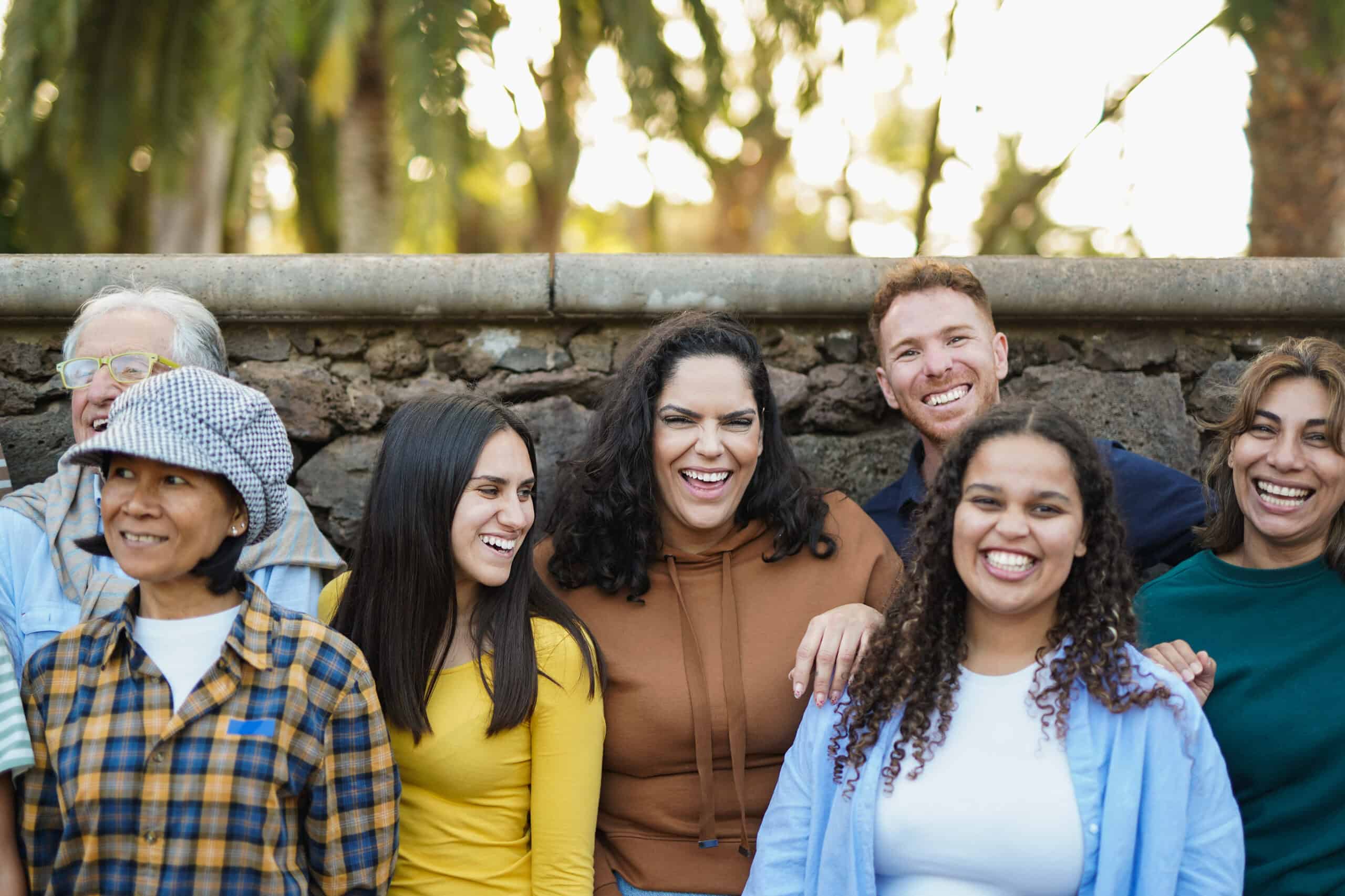Do you ever feel like making new friends as a parent feels harder than folding a fitted sheet one-handed?
Making friends as an adult can be tough – and even tougher when you’re a couple juggling kids, work and never-ending laundry. Yet, strong friendships are very important for wellbeing, and research shows that social connections can buffer stress, improve health and even increase relationship satisfaction.
Neuroscience Insight
Social connection is emotionally rewarding but also biologically powerful. Research shows that strong relationships can reduce cortisol (a key stress hormone), improve cardiovascular function, and increase immune responses. For example, studies on women undergoing chemotherapy found that those with higher perceived social support were less likely to develop infections, demonstrating a direct link between social connection and immune health (3).
Similarly, social integration has been associated with healthier immune profiles, such as higher levels of protective natural killer cells (4). And in the context of relationships, adults with strong social networks tend to experience greater satisfaction and resilience during stressful parenting phases (5).

For parents facing chronic sleep deprivation, mental overload or emotional burnout, even brief positive social interactions can help regulate stress and support long-term health. To understand how emotional resilience supports connection and health, read The Science of Emotional Resilience.
5 Ways to Make Friends as an Adult
Here are five research-backed ways couples with children can build meaningful friendships:
1. Connect Through Your Kids’ Activities
One of the most effective ways to meet other couples is through your children’s social circles – school events, birthday parties, sports teams or community classes. Shared experiences and routines create natural opportunities for connection.
- A study from PISA found that parents who know their children’s school friends and their families tend to build stronger school communities and experience higher social trust and satisfaction (1).

2. Prioritise “Adult Friendships”
Research shows that adults who maintain friendships with other adults report higher relationship satisfaction and greater emotional support. These friendships offer mutual empathy, shared values and social reinforcement.
- Adult friendships contribute to a sense of community and reduce isolation, especially during demanding parenting years (2).
3. Join Parent-Oriented Groups or Online Communities
Parenting-focused groups, such as local communities, meetup apps or neighborhood parenting clubs, are great ways to find like-minded couples.
- Digitally mediated community groups can effectively facilitate social bonding and real-life friendships among parents. Try joining a local WhatsApp group, a parenting Meetup, or even a hobby group that welcomes kids, like a family hiking club or Sunday community swim.
To ensure digital spaces support – not replace – real-life friendships, read Creating Digital Boundaries to Protect Your Mental Space.
PAUSE AND REFLECT
As parents, it’s easy to default into survival mode and let friendships fade.
Sometimes, one intentional step – like texting a friend to meet at the park – can rekindle connection.
What would happen if you reached out this week?
4. Practice “Initiating Friendship” Behaviours
It can feel awkward to reach out, but research shows that simple behaviours like initiating conversation, suggesting a coffee meet-up or showing vulnerability are linked with stronger and more frequent social ties.
- One study found that adults who self-disclosed and made small social overtures (e.g., asking to meet up) were more likely to form lasting friendships (2).
5. Host Low-Stress Gatherings
Instead of waiting for invitations, create your own social space. Host casual get-togethers like backyard barbecues, park picnics or game nights that include kids. Research suggests that repeated social exposure builds closeness over time.
- The “mere exposure effect” shows that the more often people interact, the more likely they are to form friendships.

Personal Differences
Everyone experiences connections differently. For some, large social groups feel energising. For others – especially those who are introverted, highly sensitive or neurodivergent – deep one-on-one connections may feel more nourishing and sustainable. The goal isn’t to “socialise more,” but to build meaningful relationships that feel emotionally safe and aligned with who you are.
If group events feel overwhelming, consider reaching out to one parent at a time or connecting in quieter spaces like walking meetups or coffee chats. Friendship isn’t about fitting in – it’s about belonging, your way.
If regret or hesitation is holding you back, Letting Go of Regrets might help you reconnect with grace.
Cultural Connection
In Scandinavian countries like Sweden and Denmark, parenting is often approached collectively. It’s common for neighbours to share childcare duties, and many communities invest in “open preschools” and family centres where parents meet regularly over coffee while kids play. These systems aren’t just logistical – they nurture emotional and social support too.
This collective approach, rooted in the belief that “it takes a village,” reduces isolation and encourages organic friendships between families. Could adopting even a small piece of this mindset – like starting a rotating weekend playgroup or joining a communal meal – help you build deeper connections in your own community?

Final Thoughts
Making friends as an adult requires intentionality, but the rewards are well worth it. Shared experiences, small efforts to connect, and a bit of vulnerability can lead to deep and lasting friendships – not just for you, but for your whole family.
Of course, it’s not always easy – time constraints, past friendship disappointments, social anxiety or neurodivergent processing styles can create invisible walls.
Yet, showing up, even imperfectly, is often all it takes to begin. If perfectionism is holding you back, read Embracing Imperfection and Self-Acceptance for a gentle reset.

Reflect
What’s one friendship you’d like to grow this year?
Share in our NeuroChild Village group or send this blog piece to a fellow parent who might need a reminder: you’re not alone.
References:
- Do parents of 15-year-olds know many of their child’s school friends and their parents? (2019, July 9). OECD. https://www.oecd.org/en/publications/do-parents-of-15-year-olds-know-many-of-their-child-s-school-friends-and-their-parents_117d034c-en.html
- Uhlendorff, H. (2000). Parents’ and children’s friendship networks. Journal of Family Issues, 21(2), 191–204. https://doi.org/10.1177/019251300021002003
- Roy, V., Ruel, S., Ivers, H., Savard, M., Gouin, J., Caplette-Gingras, A., Lemieux, J., Couture, F., & Savard, J. (2020). Stress-buffering effect of social support on immunity and infectious risk during chemotherapy for breast cancer. Brain Behavior & Immunity – Health, 10, 100186. https://doi.org/10.1016/j.bbih.2020.100186
- Miyazaki, T., Ishikawa, T., Iimori, H., Miki, A., Wenner, M., Fukunishi, I., & Kawamura, N. (2003). Relationship between perceived social support and immune function. Stress and Health, 19(1), 3–7. https://doi.org/10.1002/smi.950
- Graham, J. E., Christian, L. M., & Kiecolt-Glaser, J. K. (2007). Close relationships and immunity. In Elsevier eBooks (pp. 781–798). https://doi.org/10.1016/b978-012088576-3/50043-5
This piece was written for you by
Making complex ideas accessible and sparking meaningful conversations.
